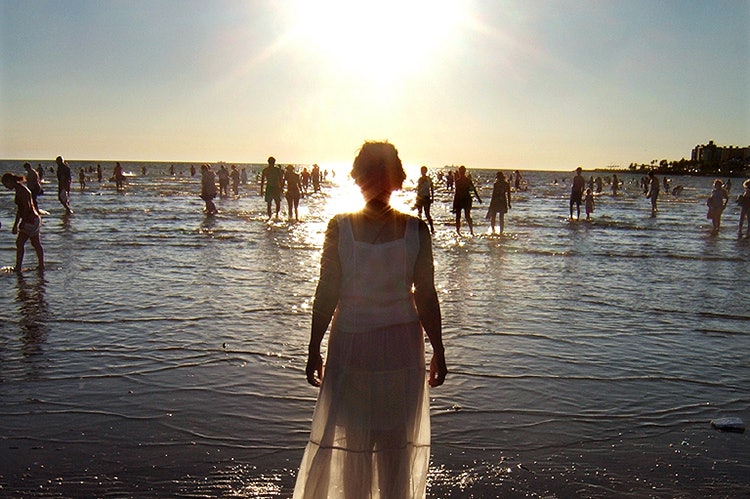Uruguay outside the box: a guide to its unconventional experiences
Sep 25, 2015 • 5 min read

Sandwiched between tourism giants Argentina and Brazil, Uruguay might suffer from ‘middle child’ syndrome. Lip service is paid to the Portuguese-founded Colonia del Sacramento, but often only as a day trip from Buenos Aires. Confirmed carnivores sing the praises of Mercado del Puerto, Montevideo’s meatopia, and beach revelers party till dawn in Punta del Este. But for visitors seeking unconventional adventures in South America’s smallest country, progressive and sophisticated Uruguay offers plenty of unique options.
Candombe-charged carnaval
Owing to its distinct church and state separation, Montevideo’s carnaval has nothing to do with the day before Lent. Instead, expect three months of celebration beginning around January 23. The carnaval story unfolds in the 18th century, when multitudes of moneyed Europeans arrived in Montevideo and imported African slaves for manual labor. The slaves, seeking solace in song and dance, met and practiced Candombe, a drum-based music style. Uruguay eventually abolished slavery, but Candombe prevailed and evolved to play a big part in carnaval.

If Candombe is the soul of carnaval, the lubolos, murgas and pariodistas are its voice. Lubolos are white men who paint their faces black and sing songs about missing the African homeland and the challenges of pleasing their masters. Unlike North American minstrel shows, lubolos do not mock slavery – instead, their acts represent an apology for the atrocities of their ancestors. Murgas use musical theater to satirize government leaders and pariodistas work the crowds while performing impersonations of politicians and other prominent individuals. If the carnaval spirit inspires you, take a Candombe or Murga class with Mario Ipuche (marioipuche.com) or La Melaza (lamelaza.com), which offers Candombe classes for women.
Gathering with gauchos
A different type of storytelling evolved in Uruguay's gaucho region. Tacuarembó, Uruguay's cowboy capital, hosts La Patria Gaucha (patriagaucha.com.uy), the country's largest gaucho festival. Held in early March, it features rodeos, skill contests, elaborate horse parades and reenactments of historic events.
In the evenings, people gather around campfires and watch payada, a 10-line song performed with guitar accompaniment, in which competitors challenge opponents with questions. Opponents then respond with improvised lyrics.
To give the gaucho life a try, roll up your sleeves and spend five days at a real working estancia (ranch). Estancia Panagea (call + 598 099 836 149) is a no-frills option where you can learn how to ride gaucho style, feed the cattle, herd the sheep and enjoy a simple lifestyle.
Sea goddess celebration
Like Candombe music, Umbanda originated with Uruguay's African slaves. This religion blends Catholic, spiritualistic and indigenous American beliefs. Its followers worship seven deities, including the sea goddess Iemanja.

On February 2nd, thousands gather at Montevideo's Playa Ramirez and pay homage to Iemanja. Garbed in white, devotees carry Styrofoam boats containing fruits and flowers as gifts, which are blessed by a priestess. As the sun sets, candles illuminate the beach, music plays, a ritual dance commences and worshipers walk into the sea. They place their boats in the water, wish for a year of prosperity and then retreat by walking backwards – one never turns their back on Iemanja.
Mystical inspiration
Like the followers of Umbanda, Francisco Piria, founder of Piriápolis, blended Christianity with mystical practices. When he was young, his parents sent him Italy to study with Franciscan monks, but they didn't expect him to return with an interest in alchemy and Kabbalah. He also returned with a dream – having visited the French Riviera, Piria wanted to build a similar place in Uruguay. He discovered his dream destination in a land parcel 100 kilometers from Montevideo.

Piria designed his town with a layout that harmonized with the Tree of Life of the Kabbalah and the Constellation of Aquarius. His hilltop home, Castillo de Piria (Piria's Castle), embodies his mystical beliefs. Statues of Greek gods greet visitors at the pathway, each one of them representing a metal used in alchemy. The castle bricks display a sequence of esoteric symbols and Templar flags wave from the towers. Piria supposedly practiced astral projection from the castle's upper floors.
Tour the rest of the town and you'll discover the Fountain of Venus, where Piria held meditation retreats, and a shrine to San Antonio. Bi-lingual tour guide Carlos Rodriguez (call +598 099 152 953) conducts mystical tours of Piriápolis.
Marijuana in Montevideo
Foreigners can't buy cannabis in Uruguay, but if a Uruguayan resident offers you a toke, it's yours for the taking. Or, you can take a cannabis tour. Excursions include visits to Montevideo's top tourist spots and participants can light up at each of them. The high point is smoking a joint on the steps of the Legislative Assembly, where the signing of the new law took place. The tour ends in the Mercado del Puerto, the perfect place to satisfy the 'munchies'. Salkantay (facebook.com/Salkantayaventura) offers these tours in Montevideo.
Plantation balloon tour
If pot isn’t your thing, there is a different way to get high in Uruguay. Bodega Garzón (bodegagarzon.com) offers olive tree plantation tours by hot air balloon. The experience begins with a film screening about Uruguay's olive oil culture, followed by a tour around the production plant to learn about the elaborate techniques used to make the oil.
After an immersive educational circuit around the property, take to the skies in the balloon for 300 meter-high panoramic views of olive trees, almond trees and windmills. Once you return to terra firma, enjoy a tasting of olive oil, cheese, homemade bread and wine to ride out your high. The tours host six people and last approximately four hours. Reserve in advance.
Plan with a local





